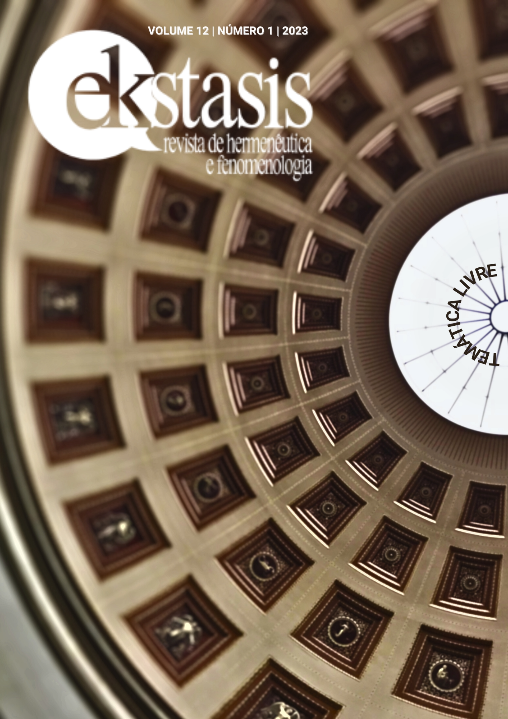Consequences of Husserl’s anti-naturalism for a theory of Meaning
DOI:
https://doi.org/10.12957/ek.2023.73339Palavras-chave:
Husserl, phenomenology, semantics, anti-naturalism, transcendentalResumo
This article is a historical reading dedicated to rescuing aspects of Husserl's phenomenology and defending its reflexive advantages over a naturalistic and calculative view of the question of meaning. We introduce Husserl's theory of intentionality and his idealized view of the structure of meaning production. We compare this theory with the problem of the linguistic-semantic object of study, showing that it inevitably evokes skepticism about the (natural) reality of this semantic-object. We introduce transcendental reflection as an alternative to the problematization of this (non-natural) non-reality. We then show that this path opens the access to study the articulations of this (unnatural) objetc as institutionalized sociocultural consensuses. We assume that Husserl’s attempt to draft a Theory of Science in the form of transcendental phenomenology canonised a model of critique of the technicality of European science that became a paradigm for bringing together subgroups of philosophical reflection that can tie the question of meaning back to both its gnostic past and its future as a study of circular presuppositions of interpretation - philosophical hermeneutics.


